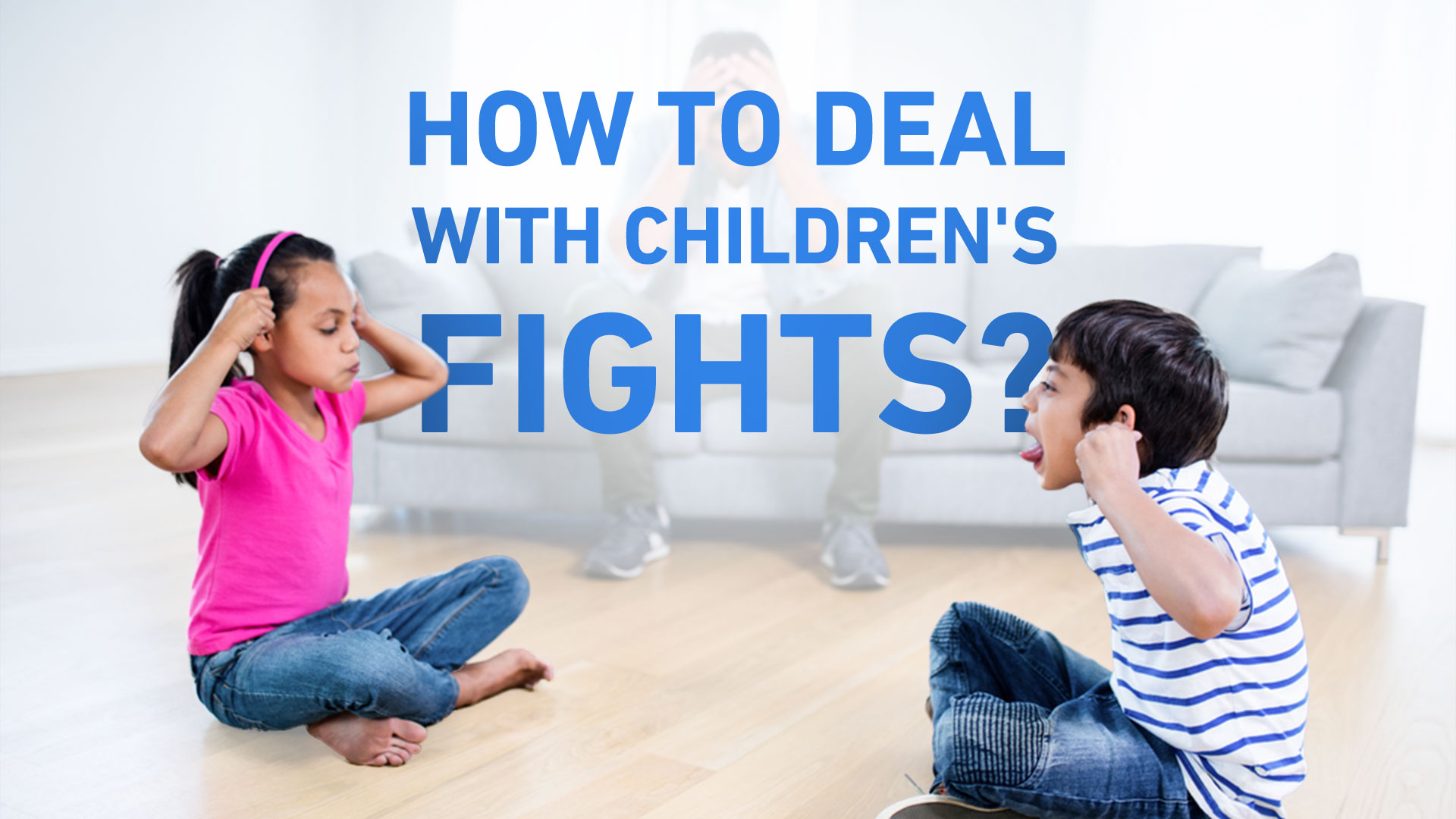
There is hardly a house without children fights, so parents should not worry because it is natural and a result of children being together in one place for a long time, whether they are brothers, relatives or friends.
Children cannot control their reactions or their emotions. They let loose of their temper once triggered.
Handling these emotions is a long process that develops over time through stages of psychological development until they become mature adults.
It is necessary, however, for parents to know the motives, reasons and the importance of taking the appropriate response to these fights, which we will try to cover in this article.
Why do children fight?
- Sometimes, it is out of boredom and adds some excitement to their playtime. Other times, they are just to connect and interact with each other – children see fights as fun sometimes.
- To gain power over the rest of the children, it could be from the eldest to the younger, or the younger to the eldest, or the leader of the group to dominate the others.
- To show gender superiority, especially by male children over their female peers.
- Jealousy – A child may feel jealous of his brother, friend or relative, and that is why they start a fight.
- Sometimes the reasons for the quarrel are not fully understood and are often due to a behavioral or psychological disorder.
- Some children start a fight to get their parent’s attention.
How do deal with children’s fights?
Firstly: Preventive actions
- Parents are role models, and therefore children mustn’t see their parents’ fights.
- Spend enough time with them so that the quarrel is not an excuse to try to attract your attention.
- Non-discrimination in treatment between brothers and sisters, while achieving justice and equality, and avoiding taking a side; whether during the quarrel, before or after it.
- Avoid comparisons between children – it causes jealousy, violence and depression that are reflected in quarrels.
- Try to spend time with each child alone to get the full attention and eliminate the feelings of jealousy.
- Setting limits for the child that respect for others is crucial.
- Introducing the concept of “sportsmanship” and the value of competition, as opposed to fights and quarrels.
Secondly: Acting during the fight!
- Observe the situation first to evaluate the case. Who is wrong and who is right? Interfere with an approach in mind to solve the problem.
- Sometimes the best thing is not to step in at all and leave them to solve their issue- to train them to be self-reliant – provided things haven’t gotten to the point of getting a physical fight.
- Encourage them to participate in finding a solution that makes everybody happy.
- Set some rules for the fight: No physical fight..talk first..no insults…no bullying
- If the fight is over trivial things, such as video games, sitting at the computer, or perhaps a portion of food or drink, the argument can be resolved by allocating a specific time/amount to each of them.
- Spread love and peace by emphasizing that “you are all brothers/sisters/friends/relatives, ask them to hug each other and shake hands.
Negative effects of children’s fight
- The child becomes aggressive
- Growing the feeling of selfishness and arrogance.
- A cause of mental illness.
- The child becomes alienated by friends and classmates.
- Negative home atmosphere.
- A severe negative impact on the child’s personality when he becomes a parent.
Advantages of these fights?
Are they any advantages?
Of course ….
- It is your chance to learn more about each child’s personality and understand their inner feelings.
- The way you deal with them is a part of the way you raise them and develop their characters.
- A good lesson for children to handle quarrels in the future.
- Through children’s fights with their peers; they learn to set the limits for their desires and to understand inclusion.
- Fights give the parents indications of whether the child needs behavioral and psychological treatment.
Fighting between children is a part of family life
Again, don’t worry, coping with child fights is part of family life, especially since after a few moments of loud noises and intense fights, children start playing again as if nothing had happened.
Children can forgive and forget and continue life normally.
This quarrel is a characteristic of this stage of childhood that it may extend even after they have matured and become teens and adults but in a less intense.
Some day in the future, you look back at these days with a nostalgic feeling and enjoy it while it lasts.
Soon, they will be leaving to find their way in life.
